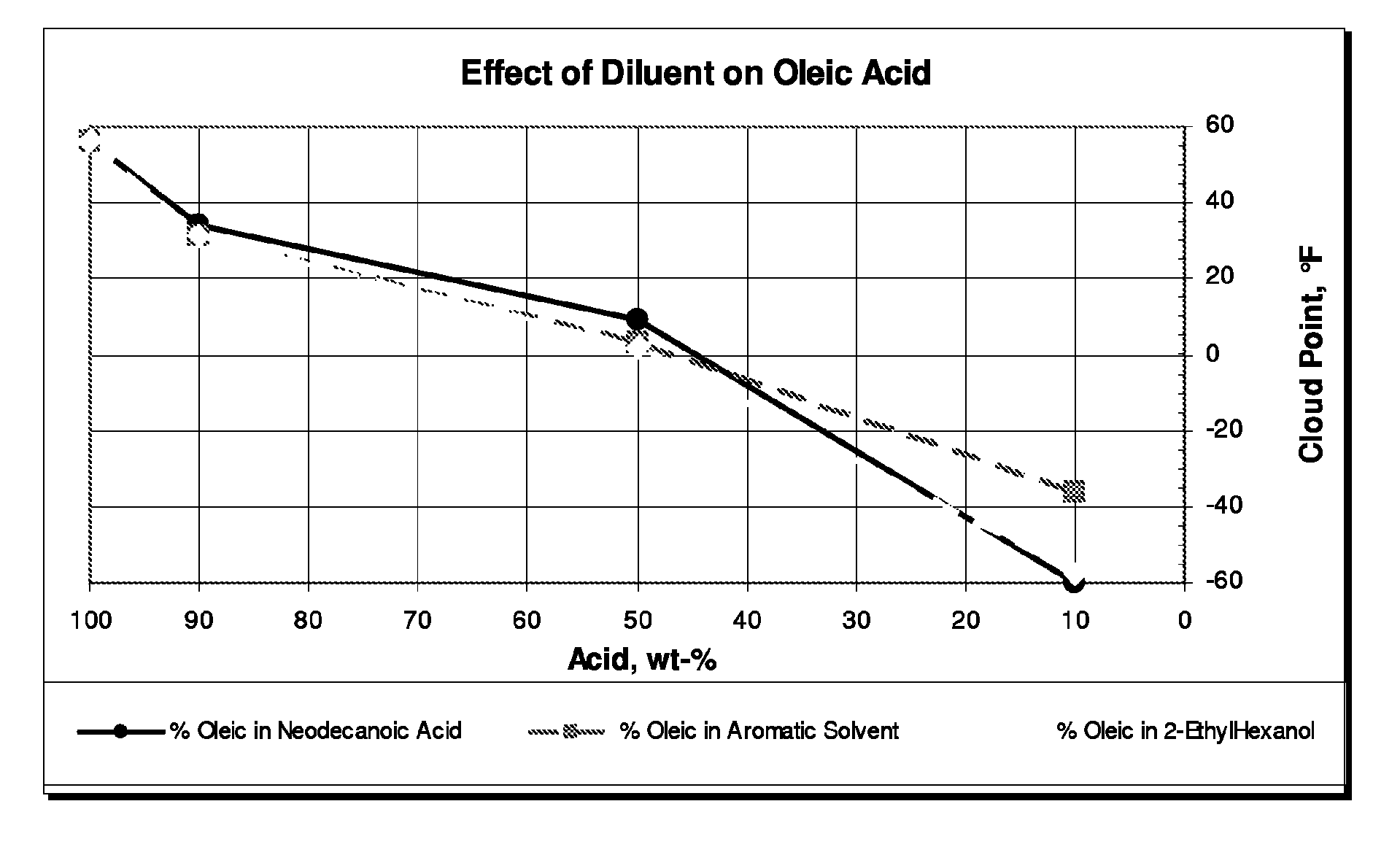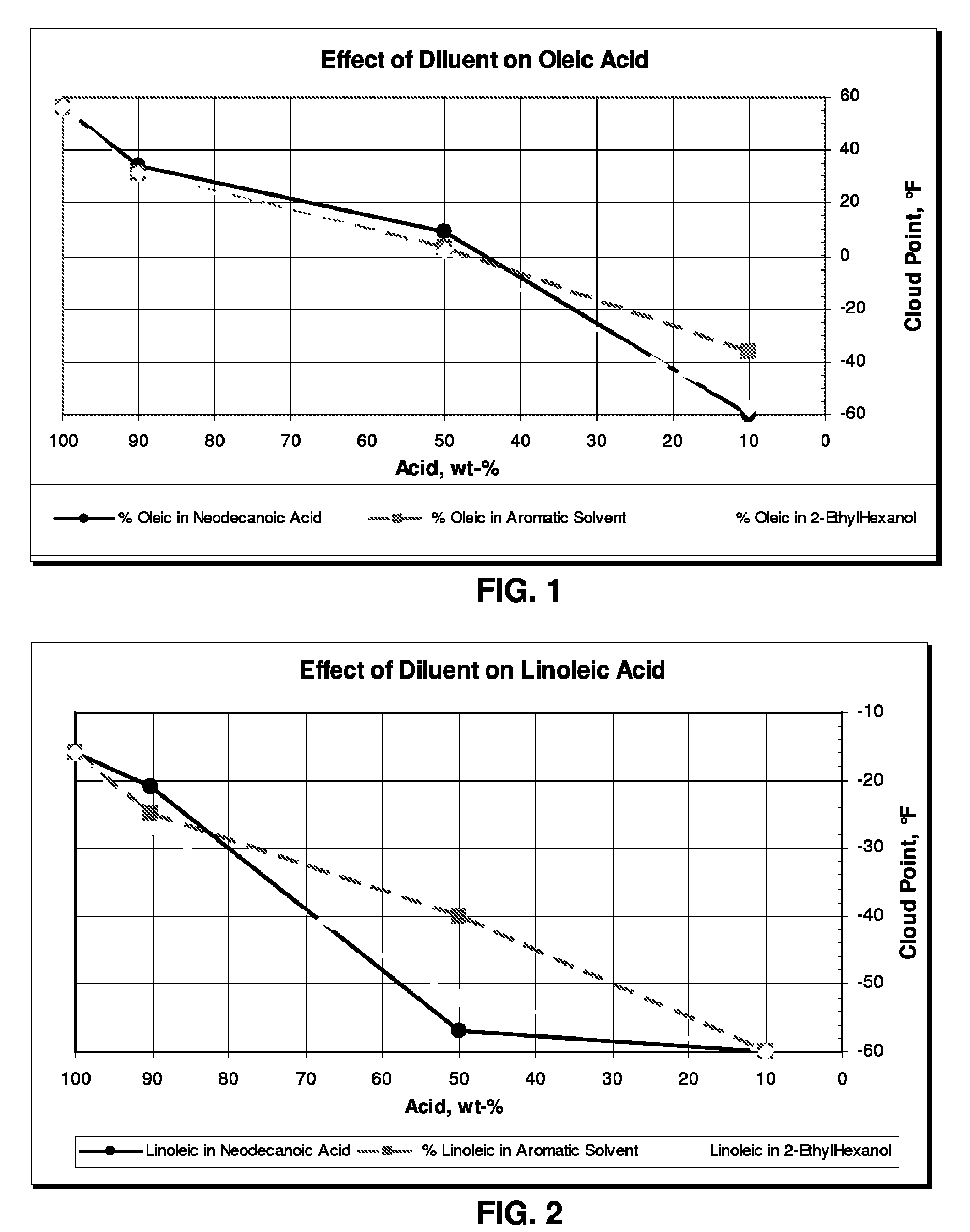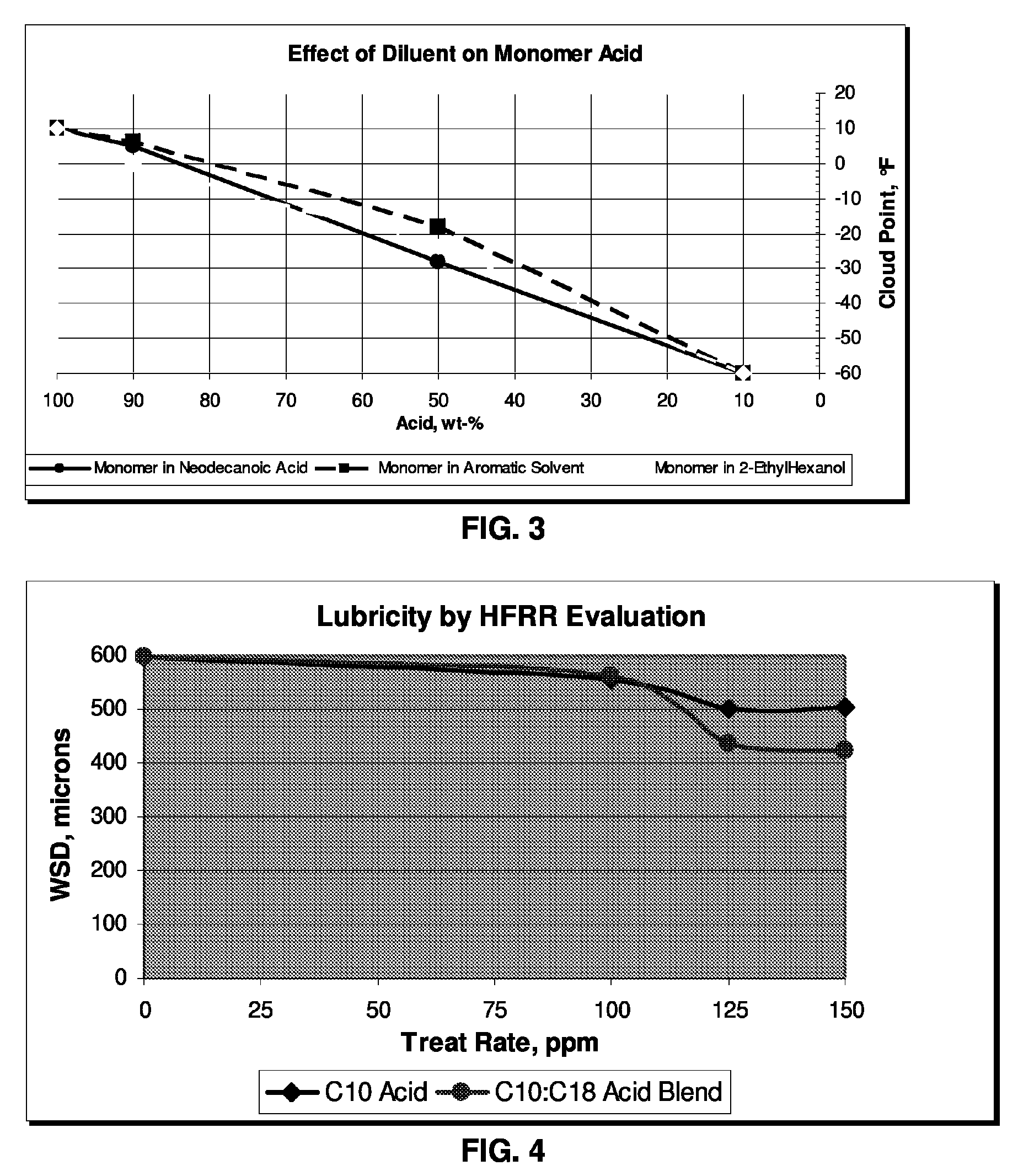Branched carboxylic acids as fuel lubricity additives
a technology of carboxylic acid and fuel lubricity, which is applied in the direction of fuel additives, liquid carbonaceous fuels, petroleum industry, etc., can solve the problems of additive handling, difficult addition of solvents, and affecting the lubricity of distillate fuel, so as to improve the lubricity of hydrocarbons, improve the lubricity, and improve the lubricity
- Summary
- Abstract
- Description
- Claims
- Application Information
AI Technical Summary
Benefits of technology
Problems solved by technology
Method used
Image
Examples
Embodiment Construction
[0013]New compositions have been discovered which contain branched carboxylic acid that are useful as fuel lubricity aids particularly at low temperature applications, such as during cold weather.
[0014]The compositions and methods described herein relate to lubricity additive compositions for distillate fuels, as contrasted with products from resid. In the context herein, distillate fuels include, but are not necessarily limited to diesel fuel, kerosene, gasoline and the like. It will be appreciated that distillate fuels include blends of conventional hydrocarbons meant by these terms with oxygenates, e.g. alcohols, such as methanol, ethanol, and other additives or blending components presently used in these distillate fuels, or that may be used in the future. In one non-limiting embodiment, the methods and compositions herein relate to low sulfur fuels, which are defined as having a sulfur content of 0.2% by weight or less, and in another non-limiting embodiment as having a sulfur ...
PUM
| Property | Measurement | Unit |
|---|---|---|
| temperatures | aaaaa | aaaaa |
| threshold | aaaaa | aaaaa |
| threshold | aaaaa | aaaaa |
Abstract
Description
Claims
Application Information
 Login to View More
Login to View More - R&D
- Intellectual Property
- Life Sciences
- Materials
- Tech Scout
- Unparalleled Data Quality
- Higher Quality Content
- 60% Fewer Hallucinations
Browse by: Latest US Patents, China's latest patents, Technical Efficacy Thesaurus, Application Domain, Technology Topic, Popular Technical Reports.
© 2025 PatSnap. All rights reserved.Legal|Privacy policy|Modern Slavery Act Transparency Statement|Sitemap|About US| Contact US: help@patsnap.com



